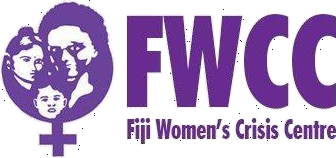Aloysius Aloriz, DIRECTOR of Bureau of Public Safety, Palau: Challenges of Policing Violence in Small Communities
6 Feb, 2018
[Guam Feb 06 2018] Director of the Palau Bureau of Public Safety, Aloysius Aloriz says that the recently passed Family Protection Act (2012) and the No Drop Policy are key tools to ensuring that survivors access to justice is ensured on the island of Palau, with a population of approximately 21,500.
Aloriz explained that these tools are critical especially for small island populations where everybody knows everybody, “….it’s my job to protect professional standards and that can be really challenging at times because sometimes I am related to perhaps the perpetrator and in those situations I remove myself from getting involved in the case,” says Aloriz.
The Belau Family Health and Safety Study (2014), a national study on violence against women in Palau states that 25.2% of women who are in an intimate partner relationships have experienced physical and/or sexual violence in her lifetime. While the figures may seem low in comparison to other pacific island countries, this does not necessarily mean that the women in Palau are less prone to be victims of domestic violence, “….domestic violence in smaller communities becomes more and more difficult to report because of the mere fact that everyone knows everyone and so when that is the case, the woman will endure the violence for a longer period of time because she doesn’t want to bring shame to the family or because she has relatives or her husband has relatives at the police station or so on, so we must understand that under these circumstances there is a high risk of women not reporting violence at all” said Shamima Ali, Coordinator of the Fiji Women’s Crisis Centre (FWCC).
Accountability and transparency are concepts important to Aloriz as he leads the Bureau, “I try to lead by example, by following the laws and making sure that my decisions are free from corruption. If there is a domestic violence case reported to the bureau and the perpetrator is related to me and he approaches me to help drop the charges I just turn around and say to him ‘you have come to the wrong person’ and I let the process take its place,” says Aloriz.
Aloriz said that he has the support of his immediate family, “it’s a tough role to be in but I’ve discussed it with immediate members of my family and I have explained clearly where family cannot cross the line.”
Aloriz is attending the Australian Federal Police (AFP) and the Fiji Women’s Crisis Centre (FWCC) Gender and Human Rights Training for Senior Executive Level Police Officers from the Micronesian region in Guam. [ENDS]
